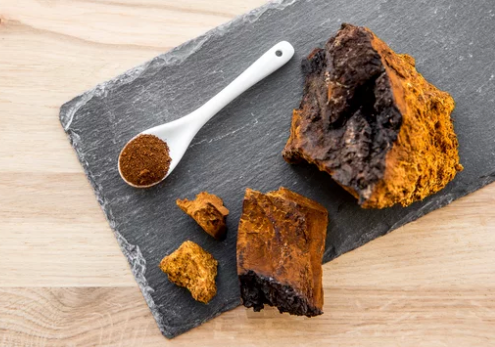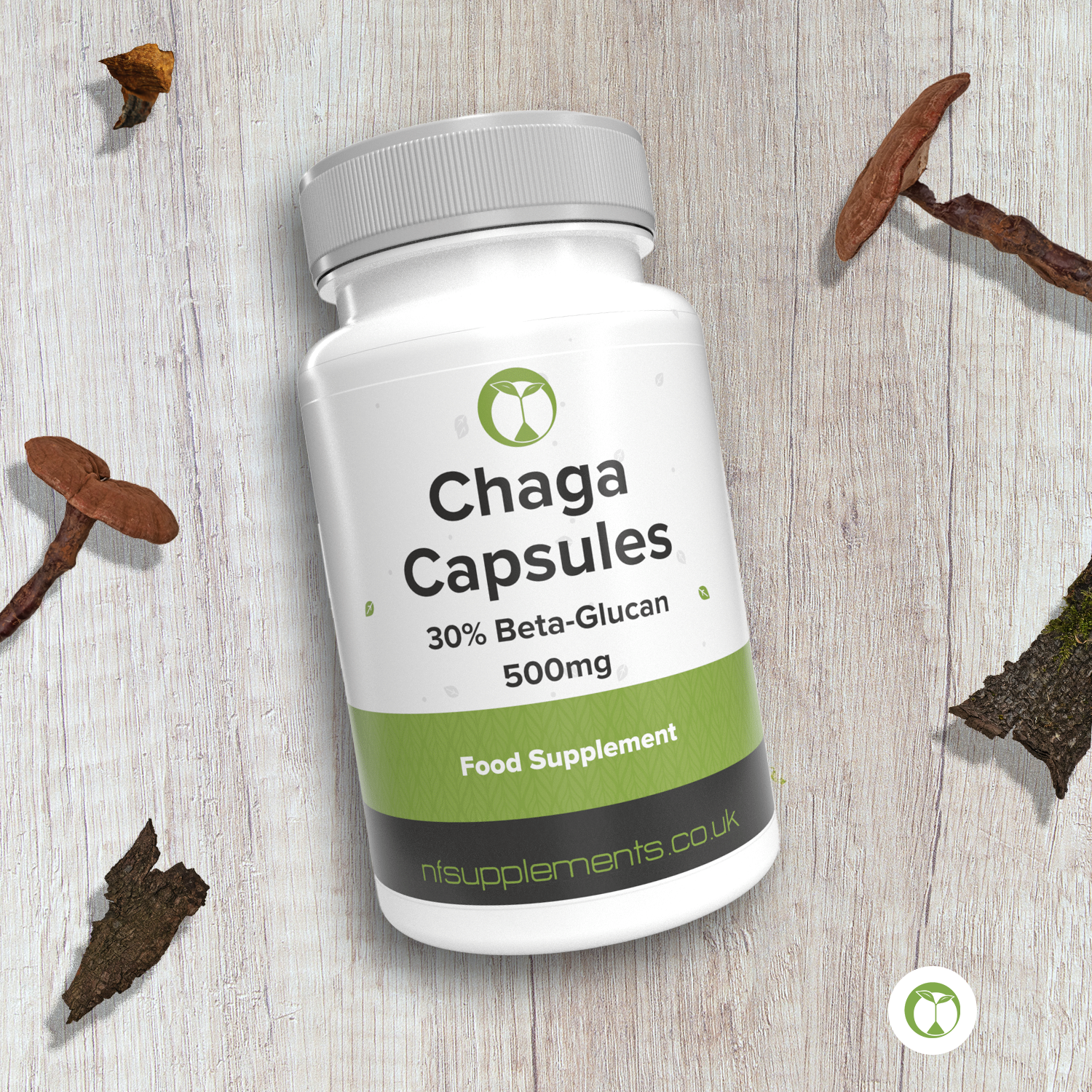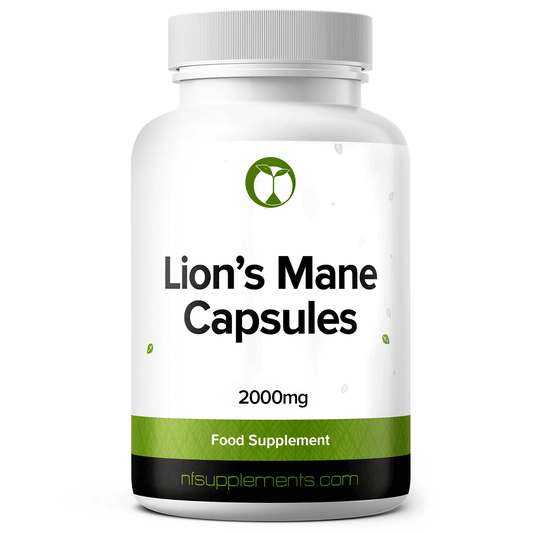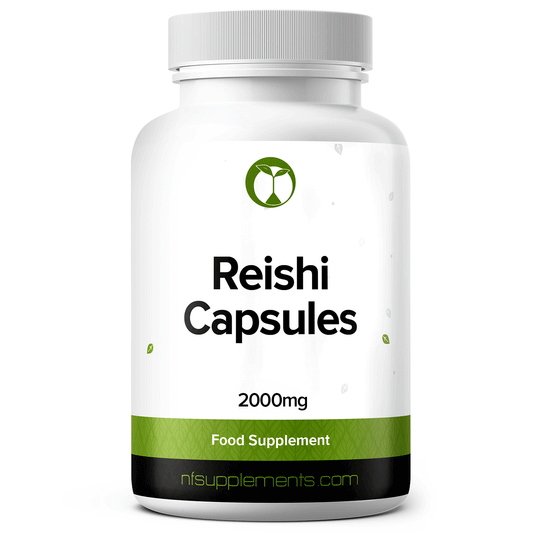
What is chaga?
Chaga mushrooms are a type of fungi that grow primarily on birch trees in cold, northern climates. It's estimated chaga takes 15-20 years to fully mature.

How to use
-
Up to four capsules per day
Take one to four 500mg capsules daily, ideally in the morning.
-
With or Without Food
Chaga can be taken with food or on an empty stomach. However, the impact of food on supplement absorption is often unpredictable as different compounds within food can interact with the supplement in different ways.
On the other hand, taking Chaga with food will slow absorption, which can be beneficial if you want the effects to kick in slower or if you experience nausea when taking the supplement on an empty stomach.




